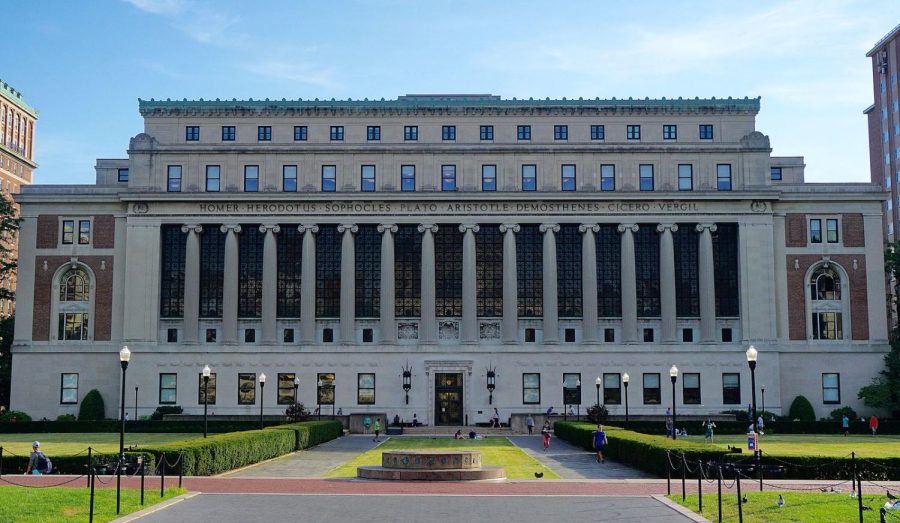Students should look past college rankings
September 24, 2022
Columbia University recently came under fire for falsifying data to drive up its U.S. News and World Report college ranking.
Michael Thaddeus, a mathematics professor at Columbia, published an analysis in February which indicated the Ivy League university was misrepresenting data to maintain its prestigious reputation.
The Columbia Spectator, the university’s student newspaper, wrote that the data the administration manufactured “misrepresented Columbia’s undergraduate class sizes, the proportion of full-time faculty with doctorates or terminal degrees, student-to-faculty ratio, graduation outcomes, and instructional spending.”
In July, U.S. News revoked the Ivy League’s status as the second best university from its college rankings “after Columbia failed to respond to multiple U.S. News requests that the university substantiate certain data it previously submitted to U.S. News.”
U.S. News revealed that U.S. News Chief Data Strategist Robert Morse first contacted the university in March, just one month after Thaddeus had publicized his analysis.
The university announced it had submitted inaccurate data to U.S. News on Sept. 9.
After receiving backlash for its lack of transparency, the school stated it would participate in the Common Data Set initiative, an effort founded by the College Board to help provide data for prospective students to better research schools.
Columbia was added back to the 2022 U.S. News college ranking on Sept. 12. This time, it occupied the eighteenth slot as opposed to the second.
This scandal called into question the credibility of college ranking lists. If Columbia was able to provide false data, it is possible that other schools may be doing the same.
Colleges may be tempted to misrepresent data to bump up their ranking. Thus, potential students seeking a valuable education are being misguided in their search.
Students, parents and educators depend on these lists to help them make challenging and financially straining decisions.
Instead of ensuring that schools are providing accurate data to college ranking lists, the role these lists play in deciding someone’s future should be devalued altogether.
“If any institution can decline from No. 2 to No. 18 in a single year, it just discredits the whole ranking operation,” Thaddeus said.
School rankings should be viewed more as guidelines that help get one’s foot in the door when researching institutions.
Students should focus more on holistic factors such as class programs, amenities and other services rather than prestige alone.
Schools vary drastically even within the same state, making it quite difficult to quantify the caliber of an education at a certain university.
To better assess quality, colleges need to be more transparent about school data for the sake of both prospective and current students.
The first step would be for colleges to upload data to the Common Data Set and publicize existing figures.
It should be a school’s responsibility to communicate such information, as it might have longterm implications on a student’s potential for success at an institution.






